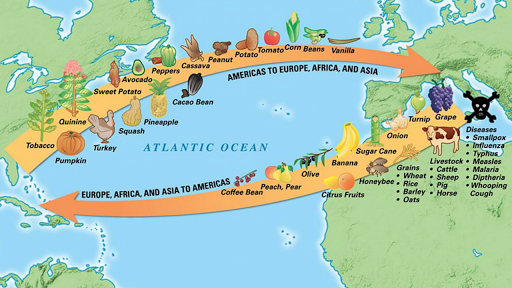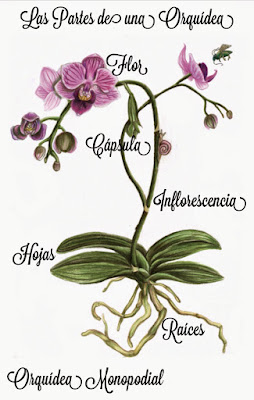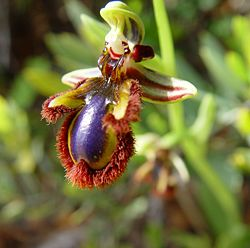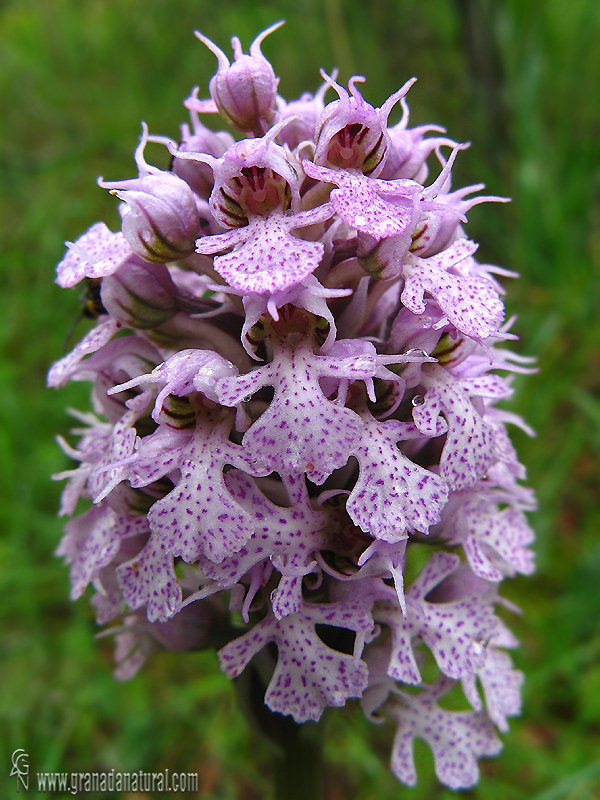PRIMARY
Este blog pretende ser una herramienta más en el aprendizaje de inglés del colegio Pedro de Valencia de Zafra, para motivar a los alumn@s y compartir experiencias.
viernes, 3 de abril de 2020
lunes, 16 de marzo de 2020
6th grade: SOCIAL SCIENCES. Modern Spain: The 20th century (2)
The Spanish Civil War (page 50-51-52-53)
Realiza el ejercicio 2 de la página 51, el ejercicio 2 de la página 53
Pablo Picasso, the Generation of ‘27 (page 56-57)
Project time! (page 58-59)
domingo, 12 de enero de 2020
5th GRADE: ARTS: MENINAS BY VELAZQUEZ
Durante este trimestre seguiremos trabajando sobre obras de arte del Museo del Prado. Estudiaremos las Meninas de Velazquez.
viernes, 10 de enero de 2020
Unit 2: Home sweet home
NegativeTEST: 31st of January
Herramientas de evaluación:
20% notas de clase
40% trabajos-PORTFOLIO
40% exámenes, Activity Book y libreta de clase
VOCABULARY
Houses
|
Numbers 1-100
|
Balcony,
basement,
downstairs,
flat, building,
floor, home,
lift, stairs,
street,
upstairs, village.
Places: town, city
and village
|
20: twenty
21: twenty-one
30:thirty
40:forty
50:fifty
60:sixty
70:seventy
80:eighty
90:ninety
100: a hundred
|
GRAMMAR:
Have got
Affirmative
I have got
You have got
He,She, It has got
We have got
You have got
They have got
Negative
I haven' got
You haven’t got
He, she, it hasn’t got
We haven’t got
You haven’t got
They haven’t got
|
Questions
Do you live in
a flat/house/
town/city/village?
Yes, I do. /
No, I don’t.
Have you a
basement/ balcony
in your house?
Yes, I have. /No, I haven’t.
How many balconies/
floors are there
n your house?
There is…
There are…
What is your address? It’s...
|
Revision
Love/ like/ enjoy +ing
Can / can’t
Numbers 1-20
What colour is…?
What number is…?
|
PHONICS
Long vowel sounds: `oa ‘ and `ou’ (goat, clown)
|
viernes, 24 de mayo de 2019
5th grade ENGLISH. UNIT 8
Click here to see the study sheet: UNIT 8. STUDY
In this unit we are going to study:
Present Perfect
In the following link you can find game, exercises and more information about present perfect
More information
We are going to review:
Irregular verbs
Superlative
Write an email:
PARTS:
1. Salutation/ greeting (It's like saying "Hi")
Hi John,
Hello Mary,
Dear,
2. body (This is where you write your message)
I'm writing to tell you about......
Last week/ last weekend....
I have been....
I have gone....
3. Closing
Cheers,
Bye,
Write soon,
4. Signature (your name)
How to write an email
In this unit we are going to study:
Present Perfect
In the following link you can find game, exercises and more information about present perfect
More information
We are going to review:
Irregular verbs
Superlative
Write an email:
PARTS:
1. Salutation/ greeting (It's like saying "Hi")
Hi John,
Hello Mary,
Dear,
2. body (This is where you write your message)
I'm writing to tell you about......
Last week/ last weekend....
I have been....
I have gone....
3. Closing
Cheers,
Bye,
Write soon,
4. Signature (your name)
How to write an email
lunes, 29 de abril de 2019
5th grade: SOCIAL SCIENCE. Unit 8 THE TIME OF THE CATHOLIC KINGS
Catholic Monarchs, also called Catholic Kings, or Catholic Majesties, Spanish Reyes Católicos, Ferdinand II of Aragon and Isabella I of Castile, whose marriage (1469) led to the unification of Spain, of which they were the first monarchs.
Although employed earlier, the appellation Católicos was formally conferred on them in a bull published by Pope Alexander VI in 1494, in recognition of their reconquest of Granada from the Moors (1481–92), their New World discoveries (1492), and their strengthening of the church by such agencies as the Spanish Inquisition and such measures as compelling Jews to convert to Christianity or face exile (1492).
HISTORIA DE EXTREMADURA
Extremadura en la historia, ¿qué papel desempeñaron Francisco Pizarro, Hernán Cortés, Vasco Núñez de Balboa, Hernando de Soto, Francisco de Orellana, Pedro Alvarado y Contreras, Pedro de Valdivia, Inés de Suárez, Alonso de Mendoza...?
LOS REYES CATÓLICOS
CAME FROM AMERICA/VINO DE AMÉRICA
FROM EUROPE TO AMERCIA/DE EUROPA A AMÉRICA

Contesta a estas preguntas:
¿Quién sucedió a los Reyes Católicos?
¿Qué relación tenía con los Reyes Católicos?
¿Quién era Felipe II?
V CENTENARIO DE LA PRIMERA VUELTA AL MUNDO
ARQUITECTURA: EL RENACIMIENTO
En esta unidad realizaremos un cómic, utilizando STORYBOARDTHAT
Although employed earlier, the appellation Católicos was formally conferred on them in a bull published by Pope Alexander VI in 1494, in recognition of their reconquest of Granada from the Moors (1481–92), their New World discoveries (1492), and their strengthening of the church by such agencies as the Spanish Inquisition and such measures as compelling Jews to convert to Christianity or face exile (1492).
HISTORIA DE EXTREMADURA
Extremadura en la historia, ¿qué papel desempeñaron Francisco Pizarro, Hernán Cortés, Vasco Núñez de Balboa, Hernando de Soto, Francisco de Orellana, Pedro Alvarado y Contreras, Pedro de Valdivia, Inés de Suárez, Alonso de Mendoza...?
LOS REYES CATÓLICOS
CAME FROM AMERICA/VINO DE AMÉRICA
FROM EUROPE TO AMERCIA/DE EUROPA A AMÉRICA

Contesta a estas preguntas:
¿Quién sucedió a los Reyes Católicos?
¿Qué relación tenía con los Reyes Católicos?
¿Quién era Felipe II?
V CENTENARIO DE LA PRIMERA VUELTA AL MUNDO
ARQUITECTURA: EL RENACIMIENTO
En esta unidad realizaremos un cómic, utilizando STORYBOARDTHAT
viernes, 26 de abril de 2019
3rd GRADE: NATURAL SCIENCES ORCHID
El próximo jueves 2 de mayo (siempre que el tiempo lo permita), haremos una salida al LIC Sierra de los Olivos.
GUÍA DE ORQUÍDEAS DE EXTREMADURA
En ese enlace podéis ver las diferentes orquídeas que hay en nuestra región.
Hay más de 25 mil especies de esta flor, nosotros vamos a intentar identificar algunas de ellas.
Tienen un sistema de reproducción llamativo para abejas y hongos
Por lo general, las orquídeas tienen tres sépalos, dos pétalos y un labelo que sirve para atraer a los polinizadores. Su forma permite que las abejas y los otros insectos puedan posarse cómodamente en él.

Estas son algunas de las especies que vamos a estudiar:




GUÍA DE ORQUÍDEAS DE EXTREMADURA
En ese enlace podéis ver las diferentes orquídeas que hay en nuestra región.
Hay más de 25 mil especies de esta flor, nosotros vamos a intentar identificar algunas de ellas.
Tienen un sistema de reproducción llamativo para abejas y hongos
Por lo general, las orquídeas tienen tres sépalos, dos pétalos y un labelo que sirve para atraer a los polinizadores. Su forma permite que las abejas y los otros insectos puedan posarse cómodamente en él.

Estas son algunas de las especies que vamos a estudiar:
OPHRYS LUTEA

OPHRYS INCUBACEA


OPHRYS SPECULUM
ORCHIS CÓNICA


ORCHIS ITÁLICA

ORCHIS PAPILONACEA

Suscribirse a:
Comentarios (Atom)